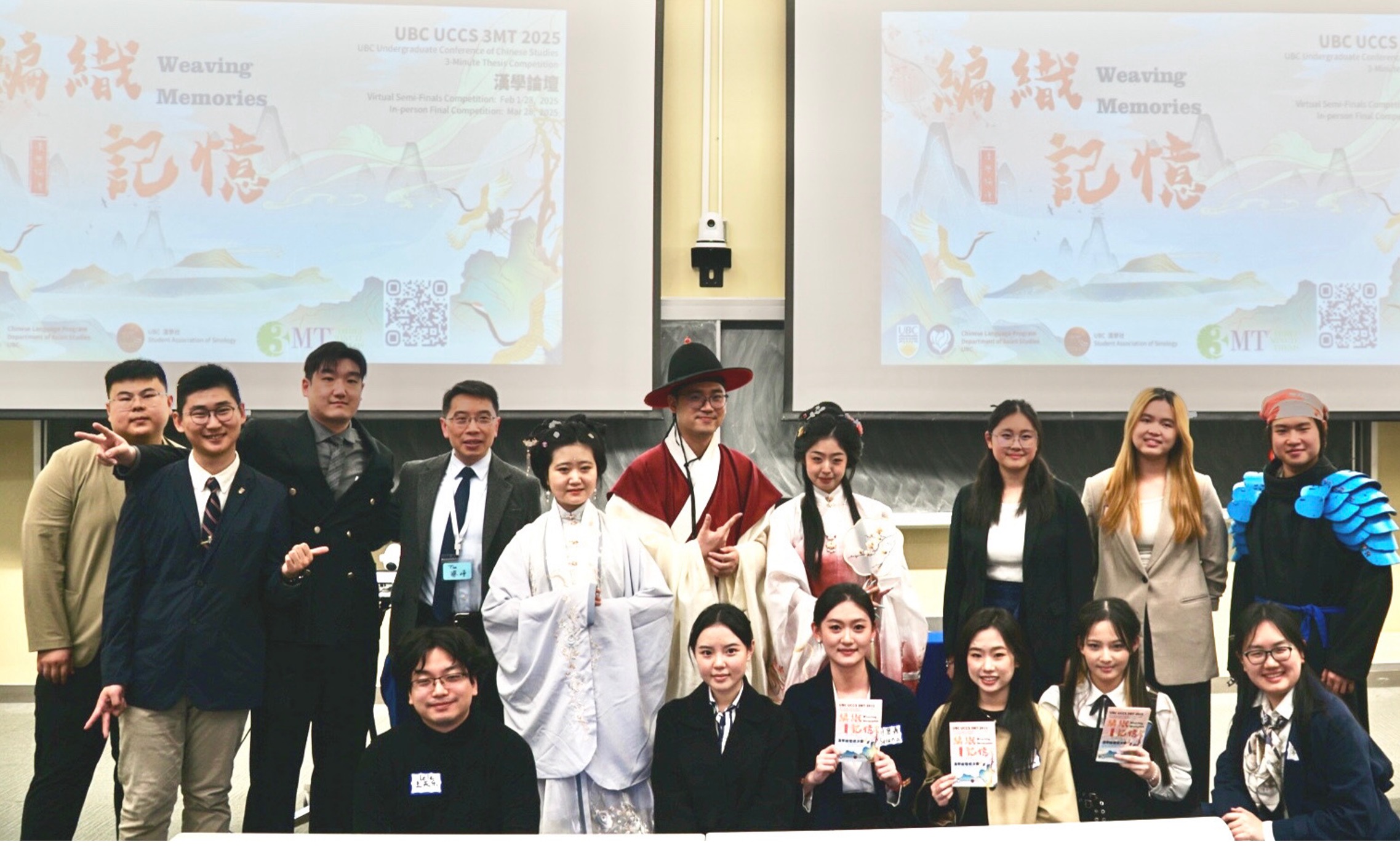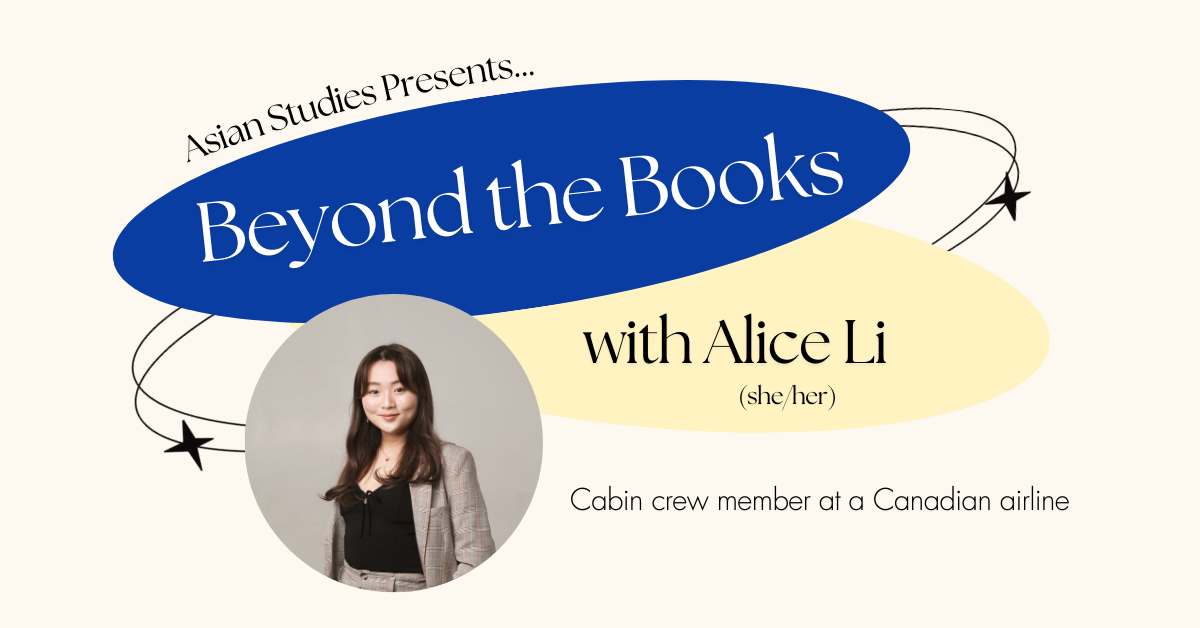The Alumni Spotlight is an interview series where we interview Asia Studies alumni about their career paths, how they became interested in Asian Studies and for any advice that would be useful to our students. This interview features Jimmy Mitchell, MA ’95. His MA is in Modern Chinese History with a thesis on the end of WWII in China. He is currently Vice President, Business Development at AdvantageBC.


Tell us a little about yourself, your background and how you became interested in Asian Studies?
I grew up in Saskatchewan but travelled and lived overseas repeatedly due to my father’s work as a writer and academic. In 1979, while living in Scotland, We discovered that we had a family connection to Norman Bethune, a Canadian doctor and communist who went to China in 1938 to assist Mao Zedong’s 8th Route Army in their war effort, and whose death there (blood poisoning, from a cut during an operation) the following year prompted Mao to honour him in a poem, one that was subsequently memorized by generations of students there; until being more recently surpassed by Mark Rosewell (aka “Dashan”), Bethune was arguably the most famous foreigner in China.
This connection led my father to live and work in China the following year, although I did not go. But when I graduated with my first university degree (BFA in Theatre, University of Regina, 1986), my family was back in China again, and they suggested I give it a try as the country was, in my father’s words, “becoming very interesting”. I found a job teaching university in the city of Taiyuan in late 1986, and for the next 18 months worked, studied, travelled extensively — and have never looked back since then. From there I lived in Taiwan for three years, and realized that a career was shaping up but that I needed further education. I chose UBC.
While a student, was there anything you did to get ahead with your career? Or anything that you would recommend that other students do?
While in graduate studies at UBC, I took 8 months out of my program to study Mandarin at a university in Taipei, and found a job editing and translating for a financial media organization. I’d recommend that anyone in Asian studies look for opportunities in the field, to either work, volunteer, or study there during the course of their university studies, even if it means taking some time out. This can not only give students valuable cultural, linguistic and personal perspective regarding the country or discipline of which they’re studying, but can also allow students to connect their formal studies with potential post-education career choices and opportunities.
How did you get your first “adult” job after graduating? Was it a simple transition?
I minored in English as an undergraduate, and so it was relatively easy to land a teaching job in China, as universities back then had a lot of difficulty attracting foreigners due to poor living conditions, low pay, and lack of recruitment networks. Later, after earning my MA at UBC years later — because I had already worked as a journalist in Taipei — I was able to return and re-enter that career path without too much difficulty.
After your first job, how did your career progress and what are you currently doing?
In 1995 I found a job as a reporter at Taiwan’s English-language station, for which I often had to conduct interviews in Chinese. Being in radio, my public recognition then gave me other opportunities to do freelance work for both radio and print (e.g. CBC, Globe and Mail, Newsweek Magazine), which again expanded my professional network more widely. In 1998, I was approached by a group of foreign journalists in Taiwan who were interested in starting an English-language newspaper, and I subsequently became the founding news editor of what became the Taipei Times.
Fast forward to 2000, and I was approached by Canada’s chief representative in Taiwan with an offer to join the Canadian Trade Office in Taipei as a diplomat. That led to subsequent work over the next decade in both Ottawa and Shanghai. Following my tenure as political Consul in Shanghai, I was (again) approached by senior officials from the Department of Canadian Heritage who were organizing Canada’s presence at the Shanghai World Expo in 2010, and for which I became a project director for the business and trade program at our national Pavilion.
Finally, during the Expo in Shanghai I met the then-President of what is now AdvantageBC, who later offered me my current position.
What do you enjoy about your current job? What are the challenges?
The work I do at AdvantageBC involves promoting British Columbia as a globally competitive location for doing international business, and because we are especially targeting Asian financial institutions, I’m able to travel to Asia — especially to China — fairly frequently. Being physically on the ground over there, talking and listening to business leaders, investors, and government officials, allows me to develop good relationships, keep up with what’s going on, and be more effective in the work I do. Our organization is also working with various stakeholder groups here to advocate for changes in public policy, aimed at making it easier to international business in and from BC. This is immensely satisfying — both intellectually and practically — because it allows us to help people and companies, and to meaningfully contribute to economic development and diversification here in BC.
I don’t see too many challenges in my work, except that there are not enough hours in the days to accomplish everything I’d like to. I wish Asia was only a three-hour flight from Vancouver.
Are there opportunities for recent graduates in your industry? What does a typical entry-level position entail?
In my current work with international financial services, there are not many opportunities for entry-level work, although internships are available and are a great way to learn about the sector, to gain insights, and get to know people. In my previous other two careers, journalism and diplomacy, the opportunities are limited only by one’s level of determination and commitment. I know all sorts of people who moved to Asia and worked their way up the chain as journalists, starting as copy editors and such. At Global Affairs Canada, there are both internship opportunities (both in Ottawa and at Embassies and Consulates around the world) and formal entry via the annual foreign service exam.
Has learning an Asian language helped you in your personal or professional life? What tips do you have for students who are keen to play the ‘language card’ in their career development?
I would not be doing what I am today had I not had a foreign language (Mandarin, in my case) under my belt. One needs to remember that while English has been the lingua franca of international business for many decades, this was not always so, and in some ways is becoming less so again. In Japan, as in Korea, it’s difficult to do business without the language. In China, the growing financial and economic clout being projected into the world has given its own business leaders greater latitude to expect Chinese to be used in negotiations and dealings. As Asia’s economies continue to outgrow those in traditional markets in North America and Europe, learning these languages is only going to become more important if we want to do business with them.
Do you have any other advice that you would like to impart to students and/or recent graduates?
If you’re interested in Asia, don’t just be an armchair enthusiast: you need to be there. Whether as a student or as a recent graduate, experiencing the life, work, culture and other aspects of those societies is key to a successful career. This experience will be valued by employers both here in Canada as well as their counterparts in whatever Asian country you choose to focus on. In other words, it’s not enough just to say it; you have to do it. Fear is not an option.


